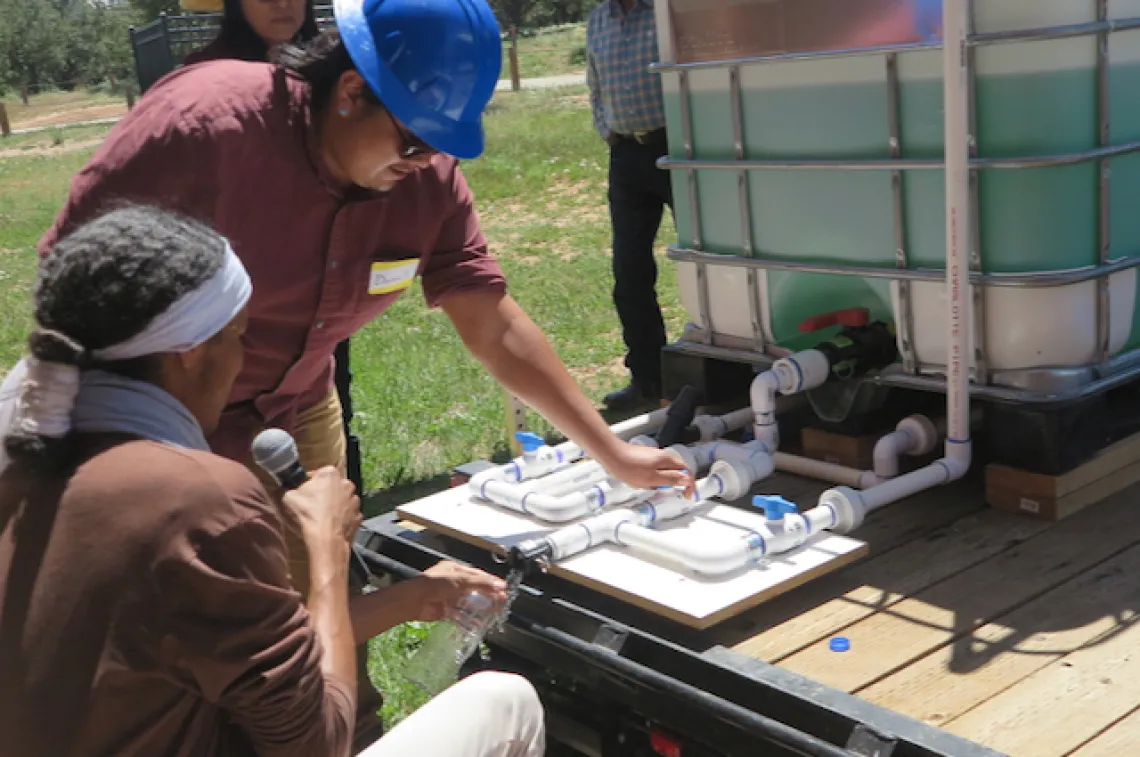The University of Arizona launches Indigenous Resilience Center, addressing environmental issues

The University of Arizona is launching a new interdisciplinary center that will partner with Native American nations to work on projects that address environmental issues.
Called the Indigenous Resilience Center, the program will be a partnership between Native nations and the university’s Arizona Institutes for Resilience, Agnese Nelms Haury Program in Environment and Social Justice, and multiple faculty members and academic programs that focus on supporting the resilience of Indigenous communities.
The center’s faculty and staff will work directly with tribal leaders and governments to co-design community-driven solutions that address issues facing Native communities, such as climate change. Projects will focus on areas including agriculture, solar energy, off-grid water resources, food resources, Native plant adaptation, and health.
Karletta Chief, a University Distinguished Outreach Professor of environmental science in the College of Agriculture and Life Sciences, will serve as the center’s director. As per the announcement: “Chief, who is Diné, is a Cooperative Extension associate specialist in environmental science who has long partnered with Native communities on projects that address environmental challenges and water insecurities facing tribes.”
The University of Arizona will recruit several new faculty members, all with backgrounds in STEM and all with training and experience in Indigenous cultures, histories, and traditions. The center’s faculty members will lead research projects and design courses that blend traditional STEM education with topics such as Native and Indigenous knowledge, tribal consultation, research ethics, natural resource management, tribal environmental health, and more.
"The Indigenous Resilience Center demonstrates the University of Arizona's commitment to building solutions to environmental problems in partnership with tribes. It will deepen our impact, bolster our signature strengths and draw global attention to how world-class research universities can better serve Indigenous communities," said University of Arizona President Robert C. Robbins.
"The Indigenous Resilience Center is University of Arizona's commitment to giving back to local tribes who have stewarded this land for millennia and who have endured and sacrificed so much. It is critical that Native nations drive the research questions based on their priorities and long-standing local knowledge, and that the approaches involve decolonized and indigenized approaches with Indigenous scientists actively leading these efforts. Furthermore, the resilience partnerships will aim to involve students who want to give back to their communities through community-based projects that are action oriented and solution driven."
All rights reserved, Archinect
